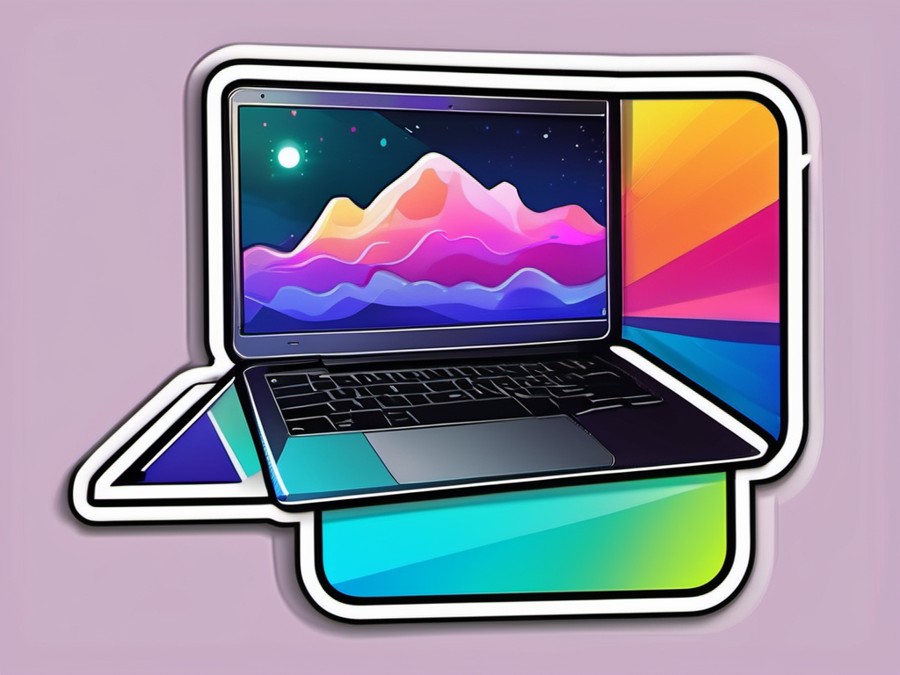· Charlotte Will · Laptops · 13 min read
What is a Chromebook and how does it differ from other laptops?
Discover what Chromebooks are and how they differ from traditional laptops. Learn about their design, portability, affordability, speed, security features, battery life, and offline capabilities. See who should buy a Chromebook and the disadvantages to consider. Compare Chromebooks to traditional laptops in various aspects, and explore the future of this evolving technology.

What is a Chromebook?
Imagine a laptop that’s light on your wallet and heavy on speed. That’s a Chromebook in a nutshell! But what exactly is it? A Chromebook is essentially a laptop that runs on Google’s Chrome OS, designed with simplicity and speed in mind. First introduced back in 2011, Chromebooks have since become a staple for those seeking an affordable and efficient computing experience.
Brief History of Chromebooks
Chromebooks were first launched as a response to the growing demand for cloud-based computing. Google wanted to create an operating system that was lightweight, secure, and highly efficient. The initial models were met with mixed reviews, but over the years, Google has continuously refined Chrome OS and the hardware it runs on. Today, Chromebooks are widely used in educational institutions, businesses, and by individuals looking for a budget-friendly yet capable device.
Understanding Google Chrome OS
At the heart of every Chromebook lies Google Chrome OS, an operating system built for speed and security. Unlike traditional laptops that run on Windows or macOS, Chrome OS is designed to be lightweight and fast. It boots up in seconds, allowing you to dive straight into your tasks without any lag. Additionally, Chrome OS receives automatic updates, ensuring that your device is always running the latest and most secure software.
Key Features of Google Chrome OS
- Speed: Optimized for quick booting and efficient performance.
- Security: Built-in features like verified boot and automatic updates keep your data safe.
- Simplicity: User-friendly design that makes it easy to navigate and use.
How Chrome OS Enhances Users’ Experience
The core philosophy behind Chrome OS is to provide a seamless, integrated experience with Google’s ecosystem. This means you can easily access and sync your data across various devices using your Google account. From emails to documents, everything is just a click away, making Chrome OS an ideal choice for users who prefer working in the cloud.
Design and Portability
One of the standout features of Chromebooks is their design. These laptops are incredibly portable, often weighing less than 3 pounds and measuring around half an inch thick. Their lightweight build makes them perfect for travel, commutes, or simply moving around the house without feeling weighed down. The portability of Chromebooks is a significant advantage, especially for those who are always on the go.
Physical Characteristics of Chromebooks
- Lightweight: Typically between 1-3 pounds.
- Slim Design: Often less than half an inch thick.
- Various Form Factors: Available in traditional clamshell designs as well as convertible 2-in-1 models.
Why Portability Matters
In today’s fast-paced world, having a portable device can make a significant difference. Chromebooks are designed to be carried easily, which is especially beneficial for students, remote workers, and frequent travelers. The combination of a lightweight body and long battery life makes Chromebooks an excellent companion for everyday use.
Affordability: The Biggest Selling Point
If there’s one thing Chromebooks are known for, it’s their affordability. While traditional laptops can set you back a few hundred pounds, Chromebooks often retail for much less. This budget-friendly pricing makes them an excellent choice for students, first-time buyers, or anyone looking for a secondary device. But don’t let the low price fool you—Chromebooks are packed with features that make them a worthy investment.
Why Chromebooks Are More Affordable
- Cost-Effective Hardware: The hardware components used in Chromebooks are generally less expensive than those found in traditional laptops.
- Software Licensing: Unlike Windows or macOS, Chrome OS is free and open-source.
Comparison with Traditional Laptops in Terms of Price
When you compare Chromebooks to traditional laptops, the price difference is stark. While a high-end laptop can easily cost over £1000, you can find a capable Chromebook for as little as £200. This affordability makes them accessible to a broader audience and ideal for budget-conscious buyers.
Speed and Performance
Chromebooks are no slouch when it comes to performance. Thanks to the efficient nature of Chrome OS, these laptops can handle multiple tasks with ease. From browsing the web to running apps and multitasking, Chromebooks offer a smooth and responsive experience. Their fast boot time is another plus, allowing you to power up your device and get started in mere seconds.
Factors Contributing to Chromebook Speed
- Lightweight OS: Chrome OS is designed to be minimalistic, requiring fewer resources.
- Solid State Storage: Many Chromebooks use SSDs, which are faster than traditional HDDs.
- Optimized Software: Applications and services on Chrome OS are optimized for speed.
Real-World Performance Comparison
In real-world usage, Chromebooks excel at everyday tasks like document editing, web browsing, and media consumption. While they may not match the raw power of high-end traditional laptops for tasks like video rendering or gaming, their speed and efficiency make them more than capable for the average user.
Security Features
Security is a top priority for any device, and Chromebooks excel in this department. With built-in security features like Google Play Protect, which scans apps for malware, and verified boot, which ensures the integrity of your system, Chrome OS keeps your data safe. Plus, automatic updates mean you’re always protected against the latest threats without having to lift a finger.
How Chrome OS Protects You
- Verified Boot: Ensures that your Chromebook boots up with the correct, untampered software.
- Automatic Updates: Keeps your device up to date with the latest security patches.
- Google Play Protect: Scans and removes any malicious apps from your Chromebook.
Real-World Security Advantages
The combination of these security features makes Chromebooks an excellent choice for users who want peace of mind. Whether you’re a student, a professional, or someone who values data security, Chromebooks offer robust protection out of the box.
Battery Life: A Standout Feature
Long battery life is another hallmark of Chromebooks. These devices are optimized to run efficiently, which often translates to impressive battery performance. Many Chromebooks can last for around 10-12 hours on a single charge, making them ideal for all-day use. Compared to traditional laptops that might struggle to reach even half of this duration, the battery life on Chromebooks is truly standout.
Factors Contributing to Long Battery Life
- Efficient Hardware: Components are designed to consume less power.
- Lightweight Software: Chrome OS is optimized for energy efficiency.
- Optimized Applications: Web apps and Android apps on Chrome OS are designed to be battery-friendly.
Real-World Battery Life Comparison
In real-world usage, Chromebooks often exceed expectations in terms of battery life. While some traditional laptops may offer decent battery performance, very few can match the endurance of a well-optimized Chromebook. This makes them an excellent choice for users who need a device that can last throughout the day without frequent recharging.
Offline Capabilities
A common misconception about Chromebooks is that they require a constant internet connection to function. While it’s true that many of their features are tied to the cloud, they do offer offline capabilities. Chrome OS supports a variety of offline apps and extensions that allow you to work even when you’re not connected. For tasks like writing documents, editing photos, or listening to music, Chromebooks have you covered—with or without the internet.
Popular Offline Apps for Chromebooks
- Google Docs: Can work offline, allowing you to edit documents without an internet connection.
- Google Keep: A note-taking app that supports offline use.
- Pixlr: An image editing tool that can be used offline.
How to Enhance Offline Experience on Chromebooks
To get the most out of your offline experience on a Chromebook, you can:
- Download Offline Apps: Make sure to download and set up offline versions of the apps you use frequently.
- Use Extensions: There are a variety of extensions available in the Chrome Web Store that enhance offline capabilities.
- Sync Data: Regularly sync your data to ensure that all your work is up to date and accessible offline.
Storage Space: A Different Approach
When it comes to storage space, Chromebooks take a different approach from traditional laptops. Instead of relying on large local storage, Chromebooks emphasize cloud-based storage solutions. This means you’ll have access to your files and data from anywhere, as long as you have an internet connection. While local storage is usually limited on Chromebooks, this cloud-first approach ensures that your important files are always backed up and accessible.
Advantages of Cloud-Based Storage
- Accessibility: Your files are available from any device with an internet connection.
- Backup and Recovery: Data is automatically backed up, reducing the risk of loss.
- Collaboration: Easily share and collaborate on documents with others in real time.
How to Manage Local Storage on Chromebooks
Even though local storage is limited, you can still manage it effectively:
- Use External Storage: You can use USB drives or SD cards to expand your storage capacity.
- Optimize File Storage: Regularly transfer and delete unnecessary files to keep your local storage tidy.
- Leverage Cloud Storage: Utilize cloud services like Google Drive for storing large files and media.
Applications: Android and Linux Integration
One of the biggest advantages of Chromebooks is their versatility in terms of applications. Not only do they support a wide range of web apps, but they also offer integration with Android and Linux applications. The Google Play Store is a treasure trove of apps that you can install directly on your Chromebook, from productivity tools to games. Additionally, many Chromebooks now support Linux apps, giving you even more flexibility in your software choices.
How to Install Android Apps on Chromebooks
- Enable Google Play Store: Make sure your Chromebook is enabled to run Android apps.
- Open Google Play Store: You can find it in your app launcher or search bar.
- Install Apps: Browse and install the apps you need just like on an Android smartphone.
How to Use Linux Apps on Chromebooks
- Enable Linux: You’ll need to turn on the Linux (Beta) feature from your Settings.
- Set Up Linux: This may involve downloading and installing updates.
- Install Linux Apps: You can now run a variety of Linux applications on your Chromebook.
Who Should Buy a Chromebook?
Chromebooks are not just for tech enthusiasts; they cater to a variety of users. If you’re someone who primarily uses your laptop for browsing the web, checking emails, or working with online applications like Google Docs, then a Chromebook is perfect for you. Students can benefit from the affordability and portability, while professionals can appreciate the speed and security features. Essentially, if your workflow is cloud-based and you don’t require heavy software like Adobe Photoshop, a Chromebook could be the ideal choice for you.
Ideal Users for Chromebooks
- Students: Affordable, lightweight, and great for taking notes and doing research.
- Remote Workers: Perfect for tasks that involve web browsing, emailing, and using cloud-based tools.
- Casual Users: Excellent for web surfing, media consumption, and light productivity tasks.
Scenarios Where Chromebooks Excel
- Classrooms: Widely used in educational settings due to their durability and ease of use.
- Business Meetings: Great for presentations, note-taking, and collaboration.
- Traveling: Lightweight design makes them perfect for on-the-go users.
Disadvantages of Chromebooks
While Chromebooks have plenty of advantages, they’re not without their limitations. One of the main drawbacks is their processing power. While sufficient for everyday tasks, Chromebooks may struggle with more intensive applications like video editing or gaming. Additionally, software compatibility can be an issue. Not all Windows or macOS applications have a Chrome OS counterpart, which could limit your options depending on your needs.
Limitations of Chromebook Hardware
- Processing Power: Generally less powerful than high-end traditional laptops.
- Graphics Capabilities: Not ideal for gaming or graphics-intensive tasks.
Software Compatibility Issues
- Limited Applications: Some apps available on Windows or macOS don’t have equivalents on Chrome OS.
- Dependence on Web Apps: Many tasks require a stable internet connection to use web apps effectively.
Chromebook vs Traditional Laptops: A Side-by-Side Comparison
So how do Chromebooks stack up against traditional laptops? Let’s break it down:
Hardware Comparison
- Chromebooks: Typically lighter and more portable, with a focus on touchscreens and convertible designs.
- Traditional Laptops: Can be heavier but offer more powerful hardware for intensive tasks.
Software Comparison
- Chromebooks: Run on Chrome OS, with a strong focus on web apps and offline capabilities.
- Traditional Laptops: Often run Windows or macOS, offering a wider range of software options.
Performance Comparison
- Chromebooks: Excellent for everyday tasks, with fast boot times and efficient performance.
- Traditional Laptops: Can handle more intensive applications, making them suitable for heavy tasks like video editing or gaming.
Affordability Comparison
- Chromebooks: Generally more budget-friendly, with prices significantly lower than traditional laptops.
- Traditional Laptops: Can be more expensive, especially when equipped with high-end hardware.
Security Comparison
- Chromebooks: Built-in security features and automatic updates ensure a safe computing experience.
- Traditional Laptops: Vulnerable to more threats unless equipped with additional security software.
Battery Life Comparison
- Chromebooks: Often exceed expectations with long battery life, suitable for all-day use.
- Traditional Laptops: While some may offer decent battery performance, few can match the endurance of a well-optimized Chromebook.
Real-World Usage Comparison
In real-world usage, Chromebooks excel at everyday tasks like document editing, web browsing, and media consumption. If your workflow is cloud-based and you don’t require heavy software, a Chromebook could be the ideal choice for you. However, if your tasks involve intensive applications like video rendering or gaming, a traditional laptop might be more suitable.
How Chromebooks Are Evolving
Chromebooks are not standing still. Over the years, they’ve evolved to include more powerful processors, improved displays, and better integration with Android apps. Google has been steadily enhancing Chrome OS, adding features like virtual desktops and Linux app support. The future looks promising for Chromebooks, with continued innovations aimed at making these devices even more versatile and user-friendly.
Recent Developments in Chromebooks
- Hardware Improvements: More powerful CPUs and better display technologies.
- Software Updates: New features in Chrome OS like virtual desktops and better Android app integration.
- Future Prospects: Ongoing advancements to make Chromebooks more capable and convenient for users.
Conclusion: Is a Chromebook Right for You?
In summary, Chromebooks offer a compelling package of affordability, portability, and speed. They’re perfect for users who rely heavily on cloud-based applications and need a device that can keep up with their on-the-go lifestyle. If you’re looking for a laptop that won’t break the bank and can handle your daily tasks with ease, a Chromebook might just be the ideal choice for you.
Ask Yourself These Questions Before Buying a Chromebook
- What are my primary uses for a laptop? If you mainly browse the web, check emails, and work with online applications, a Chromebook is perfect.
- Do I need to run specific software? If you require heavy applications like Adobe Photoshop, a traditional laptop might be more suitable.
- How important is portability to me? If you’re always on the move, a lightweight Chromebook could be ideal.
- What is my budget? If you’re looking for an affordable yet capable device, Chromebooks are hard to beat.
- Do I value security and ease of use? If you want a device that’s secure out of the box and easy to navigate, Chromebooks excel in these areas.
FAQs
Q: Can I use a Chromebook without an internet connection?
A: Yes, you can. While many of their features are tied to the cloud, Chromebooks also support offline functionality for tasks like document editing and listening to music.
Q: Are Chromebooks good for students?
A: Absolutely! Chromebooks are popular among students due to their affordability, lightweight design, and the integration with Google Workspace for education.
Q: Can I run Windows applications on a Chromebook?
A: While you can’t run traditional Windows apps natively on Chrome OS, many Chromebooks now support Linux applications, which can sometimes serve as alternatives.
Q: How do I transfer files to a Chromebook?
A: Transferring files is easy with Chromebooks. You can use a USB drive, cloud storage services like Google Drive, or even apps that support direct file transfers.
Q: What happens if my Chromebook gets lost or stolen?
A: Chromebooks have built-in security features to protect your data. In case of loss or theft, you can use the “Find My Device” feature to locate your Chromebook and even wipe it remotely if necessary.




